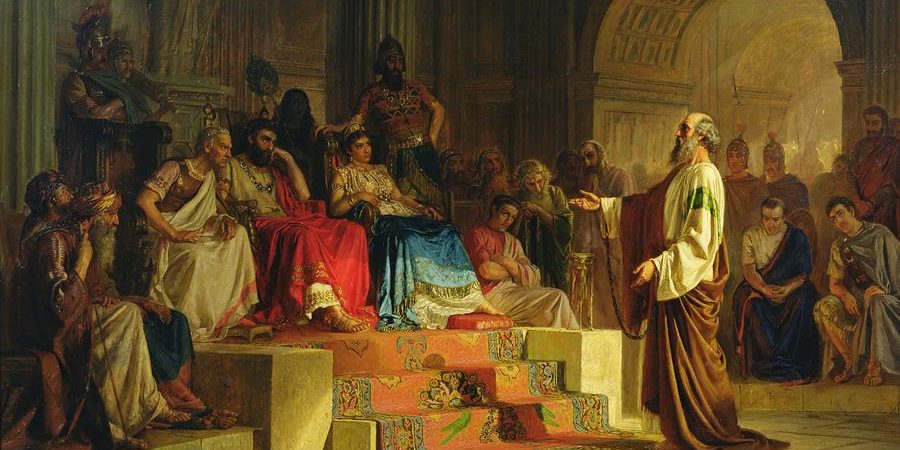
How can we open their eyes? (Fred Zaspel)
In Acts 26 the apostle Paul tells us some of the details about his conversion on the Damascus Road. He tells us, among other things, that when the Lord saved him he also commissioned him to preach the gospel. That which until now he had been opposing was from here on to be his life’s work. The Lord Jesus arrested him, as it were, and set him on a new course entirely.
“I have appeared to you to appoint you as a servant and as a witness of what you have seen of me and what I will show you. I will rescue you from your own people and from the Gentiles. I am sending you to them to open their eyes and turn them from darkness to light, and from the power of Satan to God, so that they may receive forgiveness of sins and a place among those who are sanctified by faith in me” (Acts 26:16-18).
Notice that the Lord commissioned him “to open their eyes.” The imagery is common in the Scriptures and is a figure of speech we use today also. When someone doesn’t understand we say “he just can’t see it.” When they do understand we say, “Finally, their eyes are open!” So in reference to Christ, we are born with our eyes blinded to the truth. Our hearts and minds are set against him in favor of ourselves and our sins. We need Christ in order to be saved, but we just don’t see it. Our eyes are blinded to the truth. Others may try to make us see it, but we can’t. We’re blind to the truth.
So the Lord commissions the apostle “to open their eyes.” But that raises an interesting question. How? How can we open their eyes? The problem is blindness, and that is a problem beyond our ability to correct. Yet this is the essence of the apostolic commission — “open their eyes.”
Of course, it is a problem even the apostle Paul did not have the power to correct. The problem goes deeper than any of us can reach. It is a problem only God can correct, for only he can change the heart. Implicit in the apostle’s commission, then, is a promise of divine provision. Paul was but the “servant,” a “witness” through whom the Lord was intending to work to the salvation of others. And so as the apostle Paul went from place to place, he preached the same gospel message. And as he did, the Lord worked through his witness to bring men and women to life, to open their eyes to their need of Christ and to bring them to faith in him so that they would be saved.
This is our part in the divine program exactly. God calls us to do something which we are entirely incapable of doing — “to open their eyes.” But as we witness for Christ, we find, this is precisely what happens. God graciously and sovereignly works through us, his servants, to the salvation of others.
Evangelism, then, is an exciting endeavor. We will never be able to take credit for anyone’s salvation, but as we are faithful in telling others about Christ we will experience the joy of being used of God to see them “turn from darkness to light” and be saved. Evangelism is a divine undertaking, and it is exciting to be a part of God’s gracious and sovereign work of opening men’s eyes to the saving truth of Jesus Christ. And this is the happy privilege — and responsibility — of every believer.
Fred Zaspel holds a Ph.D. in historical theology from the Free University of Amsterdam. He is currently a pastor at the Reformed Baptist Church of Franconia, PA. He is also Professor of Systematic Theology at Calvary Baptist Seminary in Lansdale, PA. He is the author of The Theology of B.B. Warfield: A Systematic Summary (Crossway, 2010) and Warfield on the Christian Life: Living in Light of the Gospel (Crossway, 2012).

